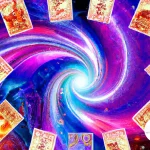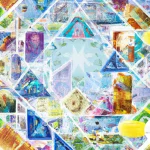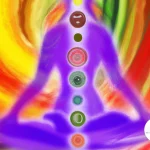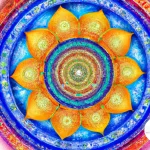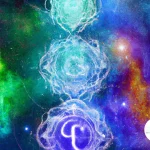Throughout history, humans have sought to understand the world around them and uncover the hidden meanings behind the events and experiences that shape their lives. Two ancient practices that have emerged from this pursuit are numerology and astrology. These esoteric arts have captivated individuals for centuries with their promises of offering insights into the nature of our existence. While they may appear separate on the surface, numerology and astrology share a deep connection that has endured through the ages. In this article, we will explore the relationship between these two disciplines and delve into their ancient roots, the ways they intersect, their influence on societies throughout history, and their modern interpretations. Join us on a journey of discovery as we explore the intricate web that connects numerology and astrology and uncover the mystical wisdom they hold.
Numerology in Ancient Civilizations
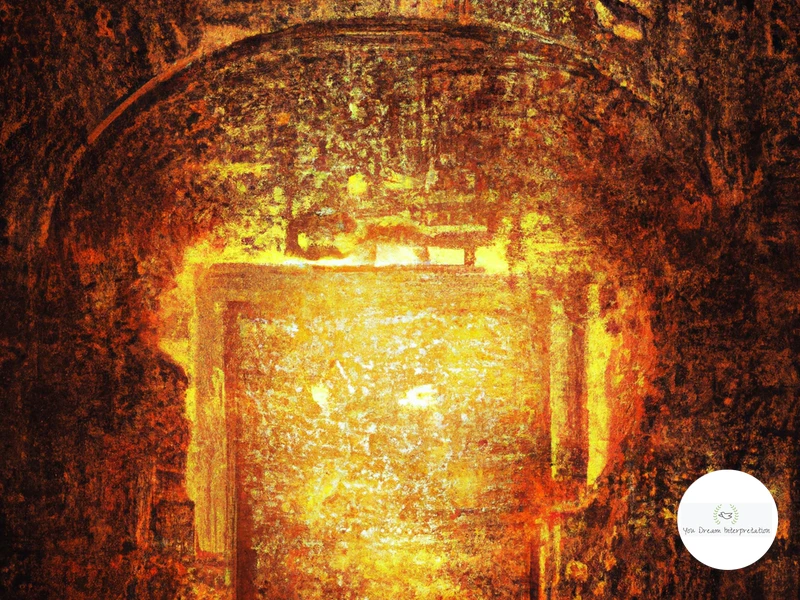
Numerology, the study of numbers and their symbolic meanings, has its origins deeply rooted in ancient civilizations. In these early societies, numbers held great significance and were believed to possess mystical qualities that could offer insights into the human experience. One of the earliest known numerological systems can be traced back to ancient Mesopotamia, where the Sumerians developed a complex system that assigned numerical values to letters, allowing for the interpretation of names and words. In ancient Egypt, numerology played a crucial role in the construction of pyramids and the planning of sacred rituals. The Egyptians believed that numbers held divine power, and each had its unique symbolism and energy. Similarly, the ancient Greeks and Romans also dabbled in numerology, as evidenced by the writings of renowned mathematicians and philosophers like Pythagoras. This period marked the emergence of the Pythagorean system, which assigned numerical values to letters and explored the mystical connections between numbers and the universe. Numerology was deeply intertwined with the belief systems and divination practices of ancient civilizations, providing a framework for understanding the world and one’s place within it. The ancient wisdom of numerology continues to captivate and guide individuals today, offering a path towards self-discovery and personal growth.
The Origins of Numerology
The origins of numerology can be traced back to ancient civilizations where numbers were recognized as more than just abstract symbols. This ancient practice emerged from a fundamental understanding that numbers held a deeper meaning and were interconnected with the fabric of the universe itself. One of the earliest known systems of numerology can be found in ancient Mesopotamia, where the Sumerians developed a complex system that assigned values to letters and words. This system, known as gematria, allowed the interpretation of names and words based on their numerical equivalents. Meanwhile, in ancient Egypt, numerology played a crucial role in various aspects of life, from religious rituals to architecture. The Egyptians believed in the divine power of numbers, associating each one with specific qualities and symbolism. They believed that understanding these numerical connections could provide insight into the nature of the universe and the human experience. The ancient Greeks and Romans also made significant contributions to the origins of numerology through the teachings of philosophers such as Pythagoras. Pythagoras developed a system that assigned numerical values to letters, creating a connection between mathematics and spirituality. This system, known as the Pythagorean system, explored the mystical relationships between numbers and their profound influence on the world. These early civilizations laid the foundation for the development and understanding of numerology, shaping its existence as a powerful tool for self-discovery and spiritual growth. Today, modern practitioners of numerology continue to delve into these ancient origins, utilizing the wisdom of the past to guide individuals on their unique life journeys.
Numerological Systems in Ancient Cultures
In ancient cultures, numerological systems played a crucial role in understanding the mystical significance of numbers. These systems offered a framework for interpreting the hidden meanings behind words, names, and even daily events. One of the most notable numerological systems was developed by the Sumerians in ancient Mesopotamia. They assigned numerical values to letters using a system known as gematria. By applying numerology to names and words, the Sumerians believed they could uncover deeper insights into the nature of reality. Similarly, the ancient Egyptians also had their own numerological system, which tied numbers to the principles of divine order and cosmic harmony. They believed that each number held a specific vibration and energy, and understanding these qualities could unlock profound spiritual truths. The ancient Greeks and Romans were also familiar with numerology, although their approach relied heavily on the teachings of Pythagoras. Pythagorean numerology connected numbers with the fundamental principles of mathematics and geometry, emphasizing their inherent symbolism and significance. This system believed that numbers were the building blocks of the universe and held a deep spiritual essence. The mystical power of numerology in ancient cultures extends far beyond mere mathematics, as it was believed to provide insights into personal characteristics, relationships, and even the potential trajectory of one’s life. Today, we can still tap into the wisdom of these ancient numerological systems to gain a deeper understanding of ourselves and the world around us. If you want to explore how numerology can help improve your relationships, you can learn more about healing friendships through numerology. Additionally, numerology can also be a powerful tool for attracting abundance and wealth. To uncover the secrets of using numerology for financial success, check out the guide on attracting financial abundance with numerology. If you’re curious about understanding your personality based on your numerology, you can decode your destiny number and discover more about yourself through decoding your destiny number and personality.
Astrology in Ancient Civilizations
Astrology, the ancient practice of studying celestial bodies and their influence on human affairs, has a rich history that spans across ancient civilizations. The roots of astrology can be traced back to the early beginnings of human civilization, where ancient societies looked to the stars for guidance and meaning. In Mesopotamia and Egypt, astrology played a significant role in the lives of these ancient civilizations. Astrologers closely observed the movements and positions of celestial bodies, such as the sun, moon, and planets, and correlated them with events on Earth. They believed that these celestial bodies held immense power and influence over the fate and destiny of individuals and nations. In Mesopotamia, astrologers developed an intricate system that involved the interpretation of celestial omens, which were believed to foretell important events. Similarly, in ancient Egypt, astrology was woven into the fabric of society, with pharaohs and rulers consulting astrologers for guidance on matters of state. The ancient Greeks also embraced astrology, with renowned scholars like Ptolemy contributing to its development and codification. Astrology served as both a practical tool for planning and as a means of understanding the mysteries of the universe and one’s place within it. Today, astrology continues to thrive, with millions of individuals seeking guidance and insight from astrological charts, horoscopes, and consultations, keeping alive the age-old wisdom of our ancient predecessors.
The Early Beginnings of Astrology
The early beginnings of astrology can be traced back thousands of years to the ancient civilizations of Mesopotamia and Egypt. In Mesopotamia, where the oldest known astrological records were found, astrology was intricately linked to the worship of celestial bodies as divine entities. The Mesopotamians believed that the movements and positions of the planets and stars held great significance and influenced the events and destinies of individuals and nations. They meticulously observed the night sky, documenting the positions of celestial bodies and developing a complex system of divination based on their observations. They believed that the gods communicated their will through the movements of the planets, and astrologers were revered as divine messengers. In Egypt, astrology was deeply intertwined with the worship of the sun god Ra. The Egyptians studied the movements of the sun, moon, and stars to develop their own astrological system, providing guidance for both personal and political matters. They believed that the gods spoke to them through the stars, and astrological interpretations were consulted to make important decisions and predictions. These early civilizations laid the foundation for the development of astrology as a respected discipline and set the stage for its influence on future cultures around the world.
Astrological Practices in Mesopotamia and Egypt
Astrological practices in Mesopotamia and Egypt flourished during ancient times, as these civilizations looked to the celestial bodies for guidance and divination. In Mesopotamia, astrology played an essential role in shaping both religious and political aspects of life. The ancient Mesopotamians believed that the movements of celestial bodies held direct influence over earthly affairs, including the fortunes of individuals and the fate of empires. They developed intricate systems of observing the stars and planets and recorded their findings on clay tablets. The Babylonians, in particular, made significant strides in astrological predictions and created the zodiac, a twelve-fold division of the sky based on the path of the Sun. It was during this time that astrology fused with mythology, as each zodiac sign became associated with a specific mythical creature or symbol.
In Egypt, astrology was closely linked with religious practices and the worship of various deities. The Egyptians observed the movements of the Sun, Moon, and planets, believing that they held divine messages from the gods. Egyptian priests meticulously recorded astronomical phenomena and interpreted them to predict events and understand the will of the gods. Astrology in ancient Egypt also played a crucial role in determining the most auspicious times for important activities such as planting crops, embarking on military campaigns, or conducting religious ceremonies.
Both Mesopotamia and Egypt recognized the significance of celestial omens and their impact on human lives. These astrological practices and beliefs permeated all levels of society, from the ruling elite to the common people seeking guidance and protection. Astrology provided a framework for understanding the world and one’s place in it, offering a sense of order and purpose in an otherwise unpredictable existence. The enduring influence of these ancient astrological practices can still be seen in modern astrology, with many elements and concepts tracing their roots back to the practices of Mesopotamia and Egypt.
The Intersection of Numerology and Astrology
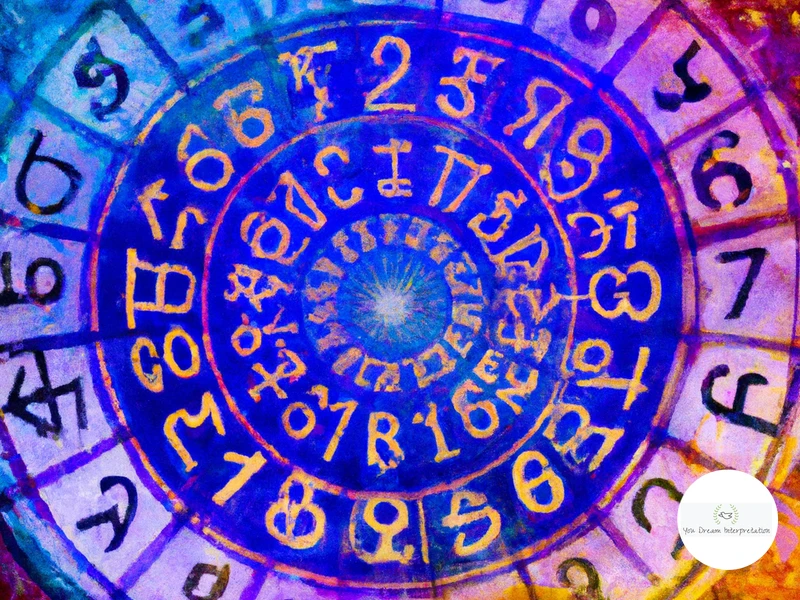
The intersection of numerology and astrology reveals a fascinating connection between these ancient practices. While numerology focuses on the significance and symbolism of numbers, astrology explores the influence of celestial bodies on human lives. In ancient times, these two disciplines were often intertwined, with astrologers using numerology to further interpret celestial events and their impact on individuals. Numerology assigns specific meanings to numbers, while astrology connects these numbers to the energy and vibrations of celestial bodies. For example, in astrological interpretations, the date of birth is often used to calculate a person’s life path number, which reveals key personality traits and life lessons. Similarly, the planetary positions at the time of birth can provide insight into a person’s compatibility with others, which is deeply rooted in numerological calculations. This intersection highlights the belief that numbers and celestial phenomena are interconnected, influencing various aspects of our lives. While each discipline stands strong on its own, the synergy between numerology and astrology allows for a deeper understanding of our individual journeys and the cosmic forces that shape them.
The Influence of Astrology on Numerology
Astrology has had a profound influence on the development and interpretation of numerology throughout history. The alignment of celestial bodies and their impact on human lives has long been a driving force behind astrological practices, and this influence spills over into numerology as well. Astrologers assign specific meanings and characteristics to each planet, and these correspondences are often used in numerology to assign numerical values to each planet as well. For example, in the Chaldean numerology system, the numbers 1 through 9 are associated with the planets from the Sun to Saturn. This connection allows for a deeper understanding of numerological interpretations by incorporating astrological symbolism and energy.
In addition to planetary associations, astrological houses also play a role in numerology. These twelve houses represent different areas of life, and they can be attributed numerical values as well. This integration allows numerologists to consider the influence of specific houses on individual traits and experiences, providing a more comprehensive analysis of a person’s numerological profile. For example, if someone has a significant concentration of numbers associated with the third house, it may indicate strong communication skills or a natural inclination towards learning and curiosity.
Aspects and transits in astrology also impact the practice of numerology. Aspects refer to the geometrical relationships between celestial bodies, such as conjunctions or oppositions, while transits involve the movement of planets in relation to an individual’s birth chart. These astrological phenomena can be incorporated into numerological analysis to provide a more nuanced interpretation of personal traits, life events, and potential challenges or opportunities.
Astrology and numerology are deeply intertwined, with astrology providing the framework of cosmic influence and symbolism that informs numerological interpretations. Their relationship showcases how different esoteric systems can complement and enrich one another, enhancing the depth and accuracy of divinatory practices. As individuals continue to explore the realms of astrology and numerology, this synergy between the two disciplines ensures a comprehensive understanding of the forces shaping our lives.
The Role of Numbers in Astrological Interpretation
The Role of Numbers in Astrological Interpretation is a fascinating aspect of the relationship between numerology and astrology. In astrology, numbers are not only used to calculate birth charts and planetary placements, but they also hold significance in interpreting and understanding the meaning behind these celestial configurations. Each number carries its unique vibrational energy and symbolism, which can provide valuable insights into an individual’s personality traits, strengths, challenges, and life path.
In astrology, certain numbers are associated with specific planetary energies. For example, the number 1 is often linked to the Sun, representing qualities such as leadership, individuality, and self-expression. The number 2 is associated with the Moon, reflecting traits like intuition, emotions, and nurturing qualities. As the numbers continue to 9, they correspond to various celestial bodies, each bringing its distinct influences and characteristics to a person’s astrological profile.
Numerological calculations can be used to examine the significance of key dates, such as birthdays or specific planetary transits, in an individual’s life. By understanding the numerological vibrations of these dates, astrologers can gain further insights into the potential opportunities, challenges, and lessons that may arise during different phases of a person’s life journey.
Numbers also play a role in determining compatibility and relationship dynamics in astrology. Numerological compatibility assessments can help individuals understand the harmonious or challenging aspects of their relationships based on the vibrational energies of their birth numbers.
It is important to note that numerology is just one tool among many used in astrological interpretation. It adds depth and nuance, providing an additional layer of understanding to the complex symbolism and dynamics of the celestial bodies. The role of numbers in astrological interpretation reinforces the intricate connection between numerology and astrology, allowing individuals to explore the mysteries of the universe and gain deeper insights into their lives and relationships.
Numerology and Astrology in the Middle Ages
During the Middle Ages, the practices of numerology and astrology flourished and their influence on society expanded significantly. The numerological and astrological wisdom of the ancient civilizations was preserved and further developed by scholars and mystics of this era. Medieval thinkers saw a deep connection between numbers and the celestial bodies, leading to the integration of numerology and astrology. The Middle Ages witnessed the birth of the Kabbalistic system of numerology, which blended Jewish mysticism and numerology, emphasizing the divine nature of numbers and their role in understanding the universe. Astrology, on the other hand, continued to be a widely embraced discipline, with scholars like Ptolemy refining astrological techniques and introducing the idea of planetary rulership over zodiac signs. Astrological charts, known as horoscopes, were used for a variety of purposes, from predicting future events to understanding one’s personality traits. The church also played a significant role during this time, with religious institutions incorporating numerology and astrology into their practices. The Renaissance saw a decline in the influence of numerology and astrology due to scientific advancements and skepticism. However, their impact during the Middle Ages cannot be understated, as they shaped the worldview of individuals and provided frameworks for understanding the mysteries of the cosmos and the intricacies of human existence.
The Medieval Synthesis of Numerology and Astrology
In the Middle Ages, a fascinating convergence occurred between the practices of numerology and astrology. During this time, scholars sought to bridge these two mystical disciplines, recognizing the inherent interconnectedness of numbers and celestial bodies. The medieval synthesis of numerology and astrology involved the integration of numerical symbolism into astrological interpretations and vice versa.
One notable figure during this period was the renowned philosopher and mathematician, Ramon Llull. Llull developed a complex system of correspondences between numbers and celestial bodies, viewing them as interconnected realms of divine knowledge. He believed that by understanding the numerical qualities of the planets and stars, one could unlock profound insights into the workings of the universe and the human condition. Llull’s system, known as Ars Magna, influenced many scholars who sought to explore the relationship between numerology and astrology further.
Another influential figure in this synthesis was the Arab scholar Al-Kindi. He saw numbers as metaphysical entities that could reveal the underlying principles of the cosmos. Al-Kindi developed techniques to assign numerical values to Arabic letters, creating a system called Abjad numerals. This system not only allowed for the interpretation of words and names but also incorporated numerological concepts into astrological calculations.
Astrologers in medieval times began incorporating numerological principles into their interpretations. They assigned deeper meanings to planetary placements and aspects based on numerical symbolism. For example, the number three, representing harmony and completeness, was associated with the trine aspect, indicating positive and favorable influences. This integration of numerology into astrology expanded the depth and richness of astrological readings.
Likewise, numerologists began to consider the influence of celestial bodies on the vibrational energies associated with each number. They believed that the position of planets and stars at the time of a person’s birth could impact their life path and destiny. Numerological calculations became more complex, incorporating birth dates, planetary positions, and other astrological factors to provide a more comprehensive understanding of an individual’s character and life events.
The medieval synthesis of numerology and astrology not only demonstrated the interconnectedness of these two disciplines but also highlighted their mutual enhancement. By combining the symbolic power of numbers with the cosmic influences of astrology, practitioners during this period sought to unlock the mysteries of the universe and gain profound insights into the human experience. This fusion of numerology and astrology had a lasting impact on the development of both disciplines and laid the foundation for their continued exploration in the centuries to come.
The Impact of Astrology and Numerology on Medieval Society
During the Middle Ages, astrology and numerology exerted a profound influence on society, permeating various aspects of daily life. The belief in the interconnectedness of the cosmos and human existence was central to medieval worldview. Astrology, with its practice of interpreting celestial movements and their impact on human affairs, held sway over matters ranging from politics to medicine. Kings and nobles would consult astrologers to inform their decisions, such as waging war or arranging marriages, as they believed that the alignment of the stars could influence the success or failure of these endeavors. Astrology also played a significant role in the medical field, where physicians would consider astrological charts to diagnose illnesses and prescribe treatments. Numerology, too, played a crucial role in medieval society. It was believed that numbers held divine qualities and could provide insights into one’s fate and character. Numerological analysis of names and dates of birth guided individuals’ choices, from the names they bestowed upon their children to the dates they selected for important events. Kings would even consult numerologists to help choose favorable dates for coronations or battles. The practice of astrology and numerology during the Middle Ages was not just confined to the elite. Ordinary individuals sought guidance from astrologers and numerologists to navigate their personal lives, make decisions, and gain insights into their futures. The impact of astrology and numerology on Medieval society cannot be underestimated as they shaped beliefs, influenced decision-making, and provided a lens through which individuals viewed the world around them.
Modern Interpretations
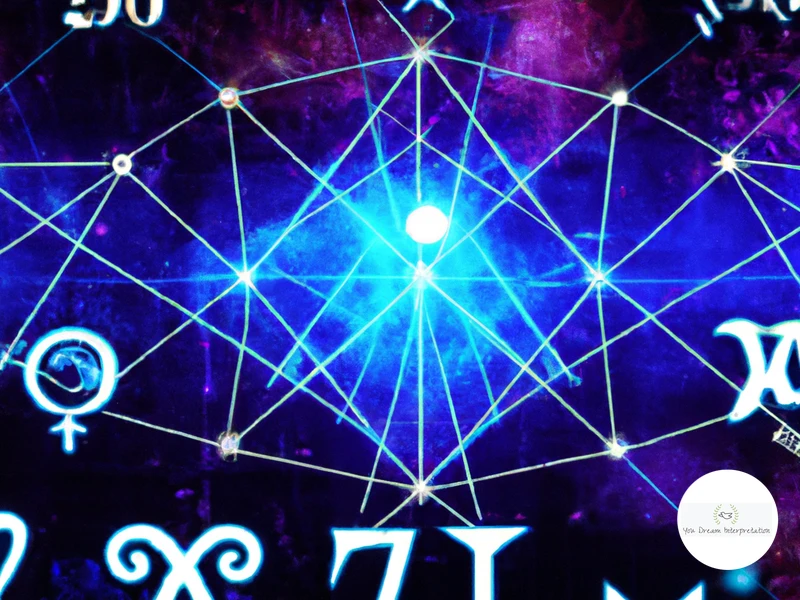
In modern times, numerology and astrology have experienced a resurgence in popularity, as individuals seek to unlock the mysteries of life and gain deeper insights into their own selves. Contemporary interpretations of numerology and astrology have evolved to cater to the needs of a diverse and curious audience. People now have access to a wide range of books, online resources, and expert practitioners who can guide them on their mystical journey. Numerology has expanded beyond traditional systems to include variations like Chaldean numerology, Kabbalistic numerology, and the modern Pythagorean system. These different interpretations offer unique perspectives on the significance of numbers and their impact on personality, relationships, and life events. Astrology has similarly evolved, with many individuals exploring not only their sun signs but also their moon signs, rising signs, and other planetary influences. Modern interpretations recognize the interconnectedness between numerology and astrology, emphasizing the correlation between numbers and astrological elements. Whether it is uncovering the meaning behind a destiny number or understanding the astrological influences on one’s life path, contemporary practices have embraced the rich tapestry of numerology and astrology, making them accessible tools for self-reflection, personal growth, and manifestation.
The Revival of Numerology and Astrology
In the modern era, there has been a remarkable resurgence of interest in numerology and astrology. As people seek deeper meaning and guidance in their lives, they have turned to these ancient practices for insight and understanding. This revival can be attributed to a variety of factors, including the increasing popularity of spirituality, the accessibility of information through the internet, and a growing curiosity about alternative belief systems.
Numerology, in particular, has experienced a resurgence in recent years. People are fascinated by the idea that numbers have inherent meanings and can offer a glimpse into their personal characteristics, life path, and future possibilities. Books, online courses, and workshops on numerology have become widely available, allowing individuals to dive into this intriguing subject and apply it to their lives.
Astrology, too, has seen a revival in the modern age. With the rise of social media and the accessibility of astrological content online, more and more people are turning to astrology to gain insights into their personalities, relationships, and life events. Astrologers have gained a significant following, and astrology-based apps and websites have become immensely popular, providing daily horoscopes, natal charts, and compatibility readings to a wide audience.
The revival of numerology and astrology has not been without its skeptics and critics. Some argue that these practices lack scientific evidence and are merely pseudoscience. However, proponents point to the undeniable influence and impact these systems have had on individuals throughout history, and on their enduring relevance today.
What sets this modern revival apart from ancient times is the integration of numerology and astrology into mainstream culture. Once considered niche or esoteric, these practices have now gained wider acceptance and recognition. Many individuals from various walks of life, including celebrities and public figures, openly express their interest in numerology and astrology, further fueling their popularity.
The revival of numerology and astrology in modern times can be attributed to a growing thirst for spiritual knowledge, the availability of information through the internet, and the desire for deeper understanding and guidance. As people seek meaning and connection in an increasingly complex world, these ancient practices offer insights, comfort, and a sense of purpose. Whether one believes in the cosmic power of numbers or the influence of celestial bodies, numerology and astrology continue to captivate and inspire individuals on their personal and spiritual journeys.
Contemporary Applications and Practices
Contemporary applications and practices of numerology and astrology have seen a resurgence in recent years, as individuals seek to uncover deeper meanings and insights into their lives. In the realm of numerology, many people turn to this ancient system for self-discovery and personal growth. Numerologists analyze the vibrations and energy of numbers, seeking to understand their influence on various aspects of life, including relationships, career, and health. By calculating and interpreting numbers such as the life path number, destiny number, and soul urge number, individuals can gain a deeper understanding of their strengths, weaknesses, and life purpose. Numerology is also widely used in the field of psychology, as some practitioners believe that numbers can offer valuable insights into an individual’s personality traits and behavioral patterns.
Astrology, on the other hand, continues to be embraced by millions of people around the world as a tool for guidance and self-reflection. In contemporary astrology, individuals consult their birth charts or horoscopes to gain insights into their personalities, relationships, and life events. Astrologers analyze the positions of celestial bodies at the time of a person’s birth to unlock the cosmic influences that shape their lives. In addition to individual horoscopes, astrology is often used to examine compatibility in relationships, career guidance, and even financial planning. Many people turn to astrologers for guidance during important life decisions or to gain clarity during challenging times.
The internet has played a significant role in the accessibility and popularity of numerology and astrology in contemporary society. Online platforms offer a wealth of information, personalized readings, and interactive tools that allow individuals to explore these esoteric arts at their own pace. Social media platforms have also become a breeding ground for astrology enthusiasts, with astrologers sharing daily horoscopes, insights, and predictions to engage with their followers.
As society continues to evolve, numerology and astrology adapt to modern needs and preferences. These ancient practices continue to captivate the curious, offering guidance, self-awareness, and a connection to the mystical forces that shape our lives. Whether seeking personal growth or simply finding comfort in the notion that there is something greater at play, numerology and astrology provide individuals with a sense of meaning and purpose in the contemporary world.
Conclusion
In conclusion, the relationship between numerology and astrology has a rich and enduring history that spans across ancient civilizations and into modern times. These esoteric arts have provided individuals with deep insights into their lives, the world around them, and the interconnectedness of the universe. Numerology’s focus on numbers and their symbolism, combined with astrology’s examination of celestial bodies and their influence, has created a powerful synergy that offers a holistic understanding of our existence. From the numerological systems of ancient Mesopotamia and Egypt to the continued practices and interpretations in the Middle Ages and contemporary times, the bond between numerology and astrology has remained strong. The revival of interest in these disciplines in recent years has led to a resurgence of their application and relevance in modern life. Whether it is decoding destiny numbers for personality insights, harnessing the power of numerology for attracting abundance, or seeking healing through numerological practices, the ancient wisdom of numerology and astrology continues to inspire and illuminate the path towards self-discovery and spiritual growth. Embracing the profound connection between numbers and the cosmos allows individuals to tap into their inner wisdom and navigate the complexities of life with clarity and purpose. As we continue to unravel the mysteries of our existence, numerology and astrology stand as timeless pillars of wisdom, guiding us on our journey towards self-realization and a deeper understanding of the universe we inhabit.
Frequently Asked Questions
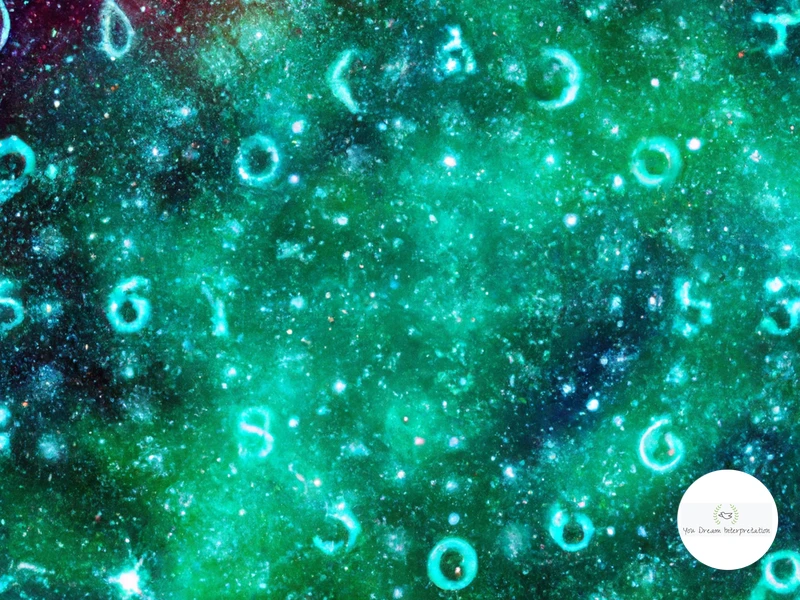
What is the significance of numerology in ancient civilizations?
Numerology held great importance in ancient civilizations as it was believed to reveal hidden meanings and offer insights into various aspects of life, such as names, events, and rituals.
How did ancient Mesopotamians practice numerology?
Ancient Mesopotamians developed a complex system that assigned numerical values to letters, allowing for the interpretation of names and words. This system formed the basis of their numerological practices.
What role did numerology play in ancient Egyptian culture?
Numerology played a significant role in ancient Egyptian culture. The Egyptians believed that numbers possessed divine power and used them in the construction of pyramids, planning rituals, and understanding the symbolism and energy of different numbers.
Who was Pythagoras, and how did he contribute to numerology?
Pythagoras was a renowned mathematician and philosopher in ancient Greece. He developed the Pythagorean system of numerology, which assigned numerical values to letters and explored the mystical connections between numbers, the universe, and human life.
How did numerology influence medieval society?
Numerology had a profound influence on medieval society. It was used in various aspects such as predicting outcomes, understanding personal characteristics, and even determining the most auspicious times for events or activities.
What is the relationship between astrology and numerology?
Astrology and numerology share a deep connection. Astrology uses the positions of celestial bodies to interpret influences on a person’s life, while numerology uses numbers to uncover hidden meanings. Both systems provide insights into different aspects of an individual’s existence.
How do numbers play a role in astrological interpretation?
In astrology, numbers are associated with different qualities and energies. They can be used to understand personality traits, life cycles, and patterns of events. Numerology can enhance astrological interpretations by providing additional layers of meaning and insight.
Are numerology and astrology still relevant today?
Absolutely! Numerology and astrology continue to be widely embraced and practiced today. Many individuals find solace and guidance in these ancient systems, using them as tools for self-discovery, personal growth, and understanding the world around them.
How has numerology and astrology evolved in modern times?
In modern times, numerology and astrology have seen a revival, with new interpretations and applications emerging. Contemporary practitioners have adapted these ancient systems to suit the needs of today, offering new perspectives and insights for individuals seeking guidance.
How can numerology and astrology be applied in everyday life?
Numerology and astrology can be applied in various ways in everyday life. They can help individuals gain self-awareness, make informed decisions, understand relationships, and navigate life’s challenges by providing insights into their unique characteristics and the energies at play.
References
- Numbers In Numerology and Their Connection With …
- Numerology: Numbers Rule The Universe
- Relationship Between Numerology and Astrology
Frequently Asked Questions

What is numerology?
Numerology is the belief that numbers hold significant meanings and have an influence on various aspects of our lives, such as personality traits, relationships, and destiny.
How far back does numerology date?
Numerology dates back to ancient civilizations, such as the Babylonians, who developed the earliest numerical systems around 3000 BCE.
What are some examples of numerological systems in ancient cultures?
Ancient cultures like the Chinese, Greeks, and Hebrews each developed their own numerological systems. For example, the Chinese used the Lo Shu Square, while the Greeks associated numbers with the letters of their alphabet.
What is astrology?
Astrology is the belief that celestial bodies, such as the planets and stars, have an influence on human behavior, personality traits, and future events.
How far back does astrology date?
Astrology has roots in ancient civilizations, with early forms of astrology appearing around 3000 BCE in Mesopotamia and Egypt.
What were some early astrological practices in Mesopotamia and Egypt?
In Mesopotamia, astrologers recorded the positions of celestial bodies and linked them to events on Earth. In Egypt, astrology was closely tied to the ruling pharaoh and was used for political and societal decision-making.
How did astrology influence numerology?
Astrology played a significant role in the development and interpretation of numerology. Astrologers believed that numbers had connections to celestial bodies and incorporated this belief into numerological systems.
What is the role of numbers in astrological interpretation?
In astrology, numbers are often used to calculate birth charts and determine the positions of celestial bodies at specific moments. These calculations help astrologers make predictions and provide insights into a person’s life based on their birth date and time.
How did astrology and numerology impact medieval society?
Astrology and numerology were highly influential during the Middle Ages. They were used for various purposes, such as predicting the outcomes of battles, making decisions about marriage and childbirth, and guiding religious practices.
How are numerology and astrology practiced in modern times?
In modern times, numerology and astrology have seen a revival in popularity. Many people consult numerologists and astrologers for guidance on personal and professional matters. There are also numerous books, websites, and apps dedicated to exploring and explaining these practices.
References
- The Connection Between Numerology And Astrology
- Numerology: Numbers Rule The Universe
- Numerology: History, Origins, & More



